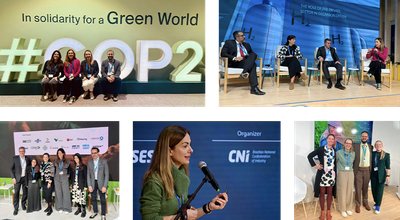
Participation in the COPs
4 representatives
30 panels
28 lectures

Latin America has a central role in the climate agenda and in relation to global biodiversity, especially considering that the COP16 was hosted in Cali, Colombia, and COP30 is to be held in Belém, Brazil. These events represent strategic moments for the region to consolidate its leadership in climate actions and those related to biodiversity. Natura recognizes the importance of these conventions in boosting nature-based solutions and promoting a fair transition to a low-carbon economy, in line with the Paris Agreement. The integration of the biodiversity and climate agendas, connecting the COP 16 and COP29 in Baku, Azerbaijan is crucial due to the interconnection between the two environmental crises.
13 representatives
60 panels
2 agreements signed in support of Amazonian socio-biodiversity

